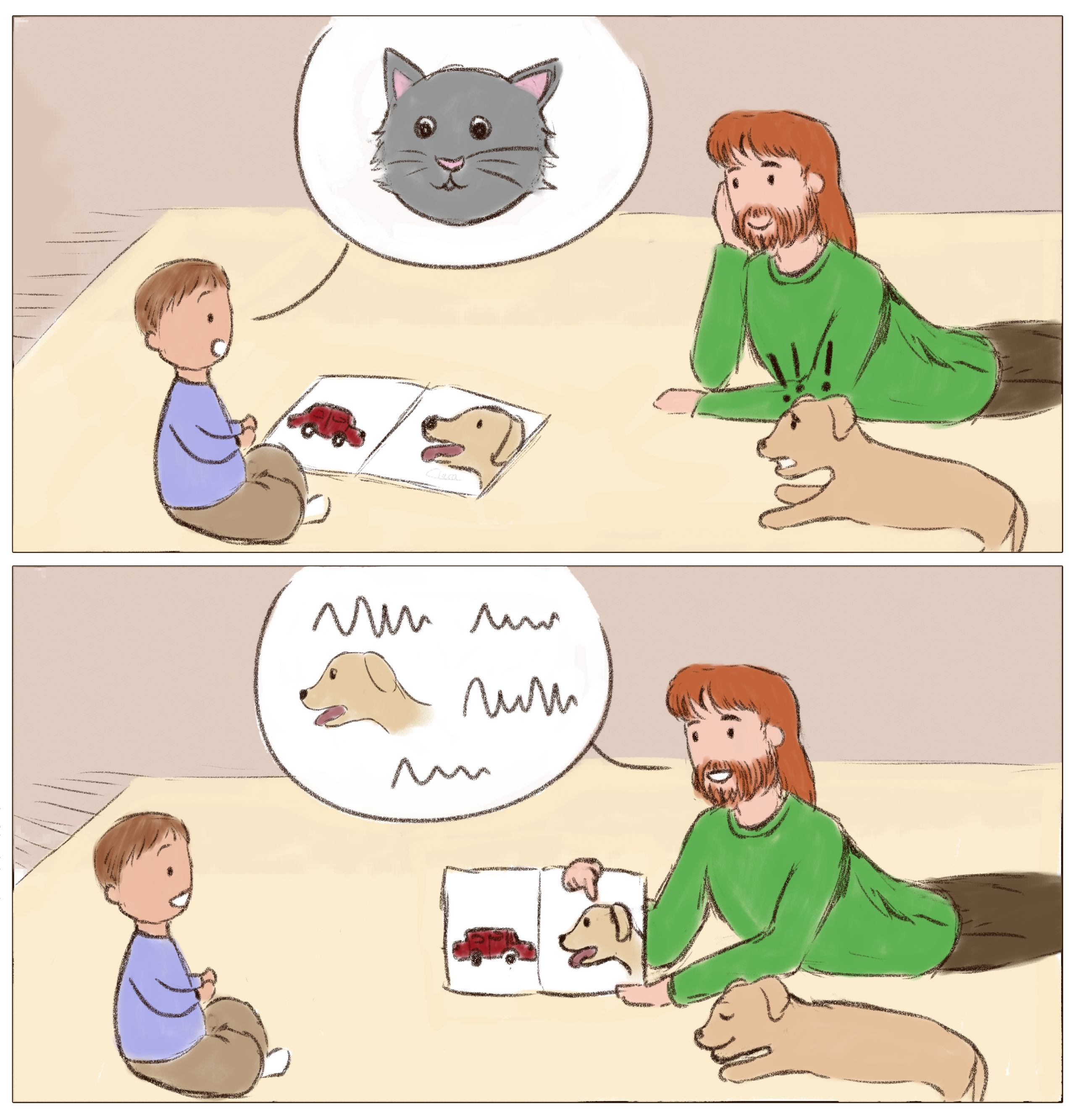Should I correct a child’s language mistakes?

Learning a language without any corrective feedback seems impossible. Imagine you are starting to learn a second language. Would you want to learn from a textbook that had no answer sheet? Yet, scientific studies show that caregivers rarely correct young children’s language mistakes.
Sometimes children’s mistakes are the result of simplification: a child may know the right way to say something, but it may be too hard for them to do so in practice. Some sounds, for example, can be difficult to produce, with even pre-school children demonstrating difficulties. In English, a hard sound to produce is ‘sh’. Young children may thus say ‘fis’ when they want to talk about a ‘fish’. Other times the mistakes may be the result of overgeneralization: a child may still be learning how to use a word. Some word meanings may be very similar and even overlap, so they can be easy to confuse, or seem close enough. For example, children may call other furry four-legged animals ‘cat’, because they have similar bodies and fur patterns. Other words may be used irregularly, so for example, a child might regularize the past tense of the word ‘eat’ and say ‘eated’ (instead of ‘ate’).
If you notice that a child is making mistakes, remember that feedback can come in many forms! Responding to children’s mistakes can be an opportunity to foster rich interactions with your child. You can reword what the child said (i.e., recast). For example, you could say: ‘She ate the fish?!’. Recasting allows the child to hear the correct pronunciation and keep learning about the sound. Another way of addressing these mistakes is to continue a conversation with the child (i.e. engage). Engaging provides the child with an opportunity to practice saying the sound. For example, you can try a counting game, ‘Let’s count the fish! One fish, two fish…’
Recasting and engaging provide children with positive feedback, and a positive space to practice. Children are master language learners, who can learn well from observation, without explicit correction.
The scientific sources of our comic:
Brown, R. & Hanlon, C. (1970). Derivational complexity and order of acquisition in child speech. In J. R. Hayes (Ed.), Cognition and the development of language (pp. 11–53). Wiley.
